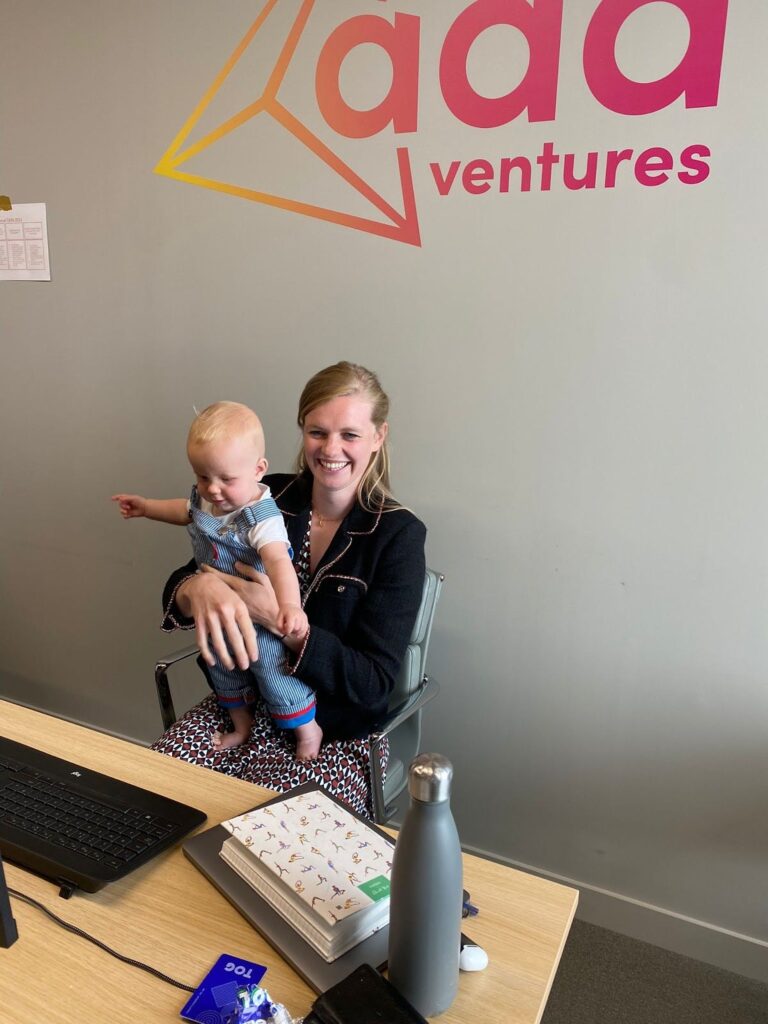
As the co-founder of a Venture Capital fund called Ada Ventures, then only 18 months old, the topic of taking parental leave as a founder was (and is) deeply personal to me.
As investors, I believe it is incumbent upon us to show leadership on this topic and create space to discuss having children with founders in our portfolio companies. It is also important to ensure that founders that are trying to conceive, concerned about fertility or having children are financially and emotionally supported on their journeys.
The purpose of this article is to share specific learnings from my journey and the conversations that followed over the last year with founders who are considering having children, and for businesses who are looking to set their employees up for successful parental leave.
Most of the tips below cost nothing and are simply about culture and communication. However, some are not possible for all businesses. For example, if their employees are unable to work flexibly or remotely. I’ve included all for completeness.
For the founder(s) of the business, here are some important topics to consider. In the full version of this article I’ve included contextual examples from our team.
- Invest in benefits, such as health insurance, and ensure that your benefits package includes a fertility benefit.
- Have a parental leave policy – and talk about it with the team. I’m amazed and disappointed at the number of firms that still don’t offer anything beyond statutory parental leave. Ensure that your parental leave policy is equal for male and female employees.
- Give all employees having children some childcare credits, to use in the first year of the baby’s life.
- Create space for people in the team to talk about their plans to have children. If you are able to communicate about this really important part of their lives in an open and supportive way on their terms, they will feel supported by you and the business.
- Consider how to support colleagues whilst they are pregnant or trying to conceive and those with young children. For example, hosting events without alcohol, ensuring they are not having to do a lot of evening events or long-haul travel.
Encourage flexible working — how flexible are you as a firm? Don’t underestimate the positive impact building a flexible working culture will have on employees general wellbeing and therefore performance.

Create a culture that genuinely supports parents and future parents — and crucially, doesn’t make parenting a “women’s issue.”
Check Warner
For the future parent, whether the founder or a part of your team, here are some important topics to consider.
- Consider that trying to conceive can be a stressful and exhausting process in and of itself and if you feel comfortable, share that you are trying to conceive with your team or trusted colleague so they can support you.
- If you are successful in getting pregnant, consider that you might be sick or very tired in the first trimester of pregnancy and how that might impact your energy at work.
- Talk to others who have had children when they were in your position. These conversations are incredibly helpful to prepare yourself for the things you might need to consider.
- After you’ve learned from others who have had children, start making a parental leave plan. I suggest writing this early and doing it in collaboration with your colleagues. Share the draft plan with them, make it open.
- Consider what you might have to do if you are unwell during pregnancy. What would your plan be and how would you adapt your job if you are unable to work as normal?
After the birth – set boundaries. I set a block in my calendar every work day between 5.30–7pm, so I can spend time with my son before he goes to sleep. Most evenings, I log back on after that to catch up. Because I set this boundary before I came back, the team respects and expects it. As a leader of a business, that boundary setting sets a good example for other team members to be able to set their own boundaries too.
I highly recommend getting a coach to help you manage the transition back to work.
Check Warner
Finally, keep communicating. Becoming a parent has been a seismic change to mine and my husband’s life. Inevitably it has also affected how I felt about my job, my confidence, my time, my sense of mastery. The only way I’ve found works well for me to avoid becoming overwhelmed is to talk about it with the community. I have also benefited from working with a brilliant coach who has helped me work through some of these changes in a really productive way. I highly recommend getting a coach to help you manage the transition back to work.
I would love to continue the conversation and learn from others. What have I missed? What is not necessary? What other great resources exist? Feedback welcome at @checkwarner on Twitter.
